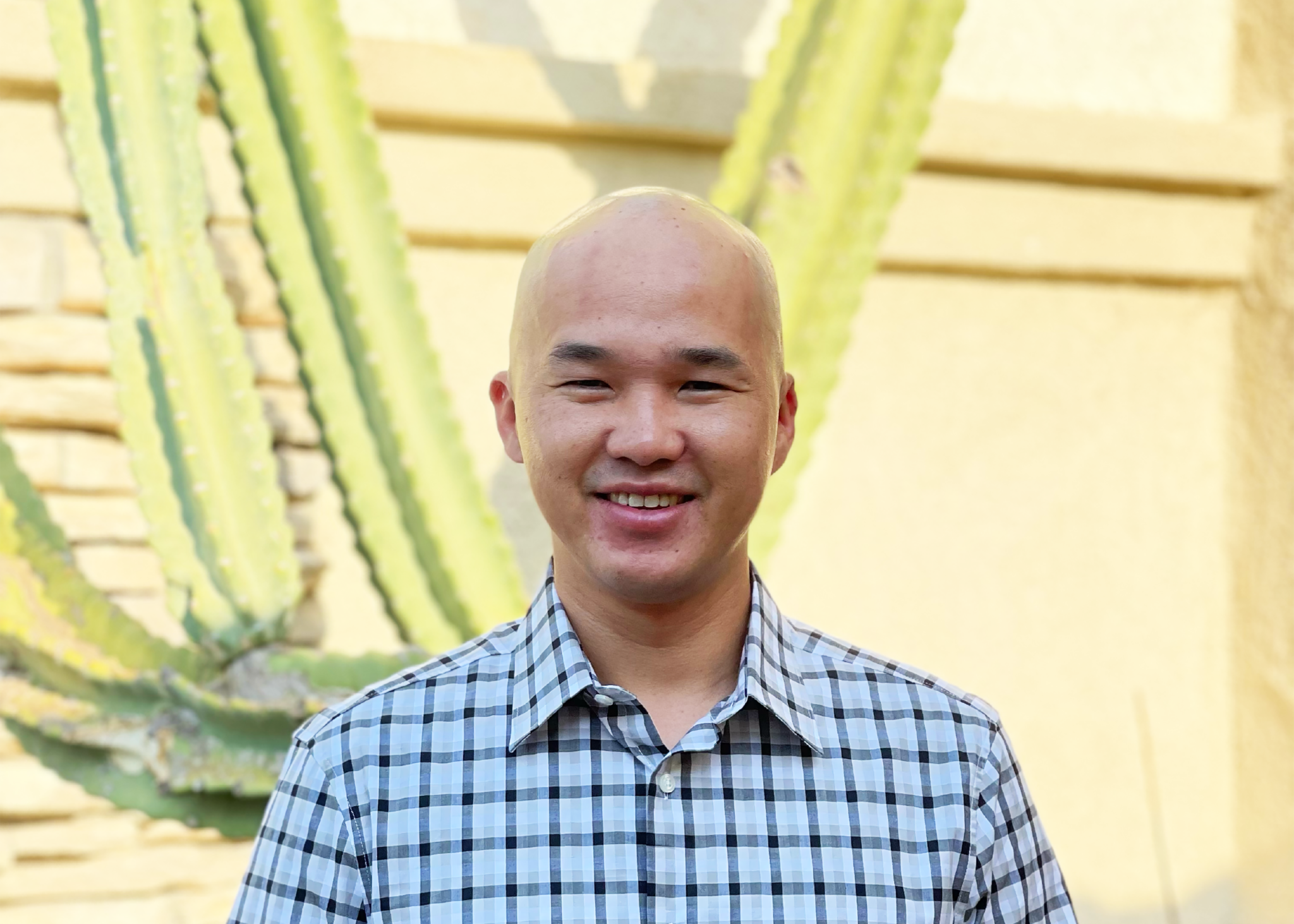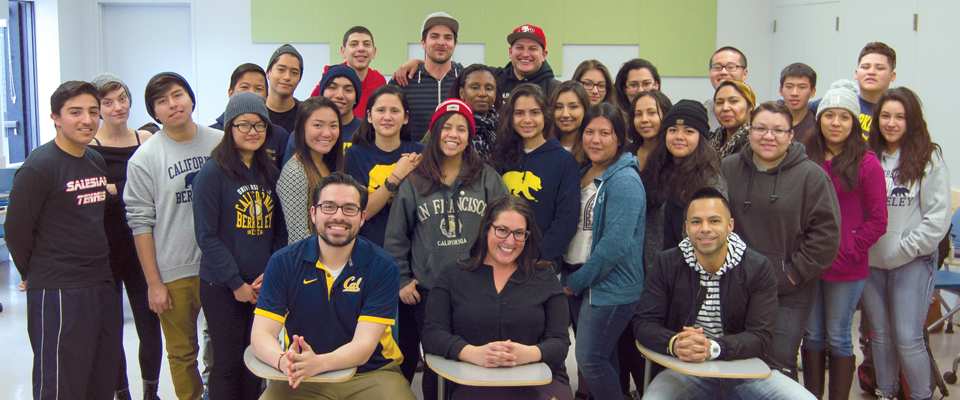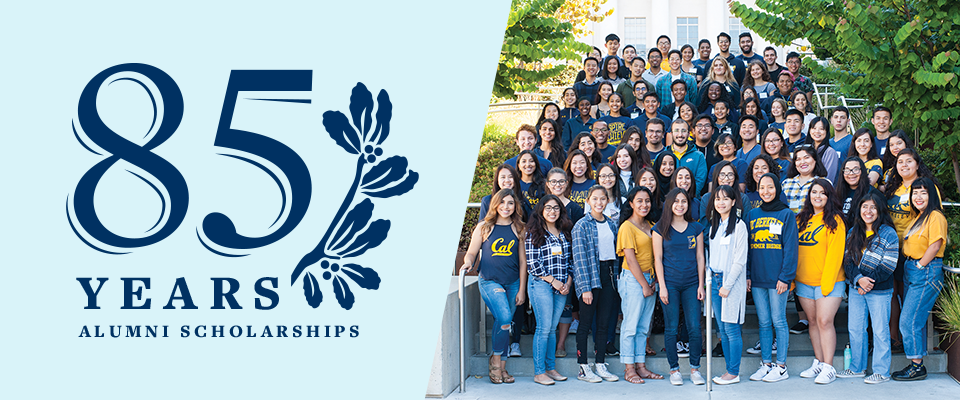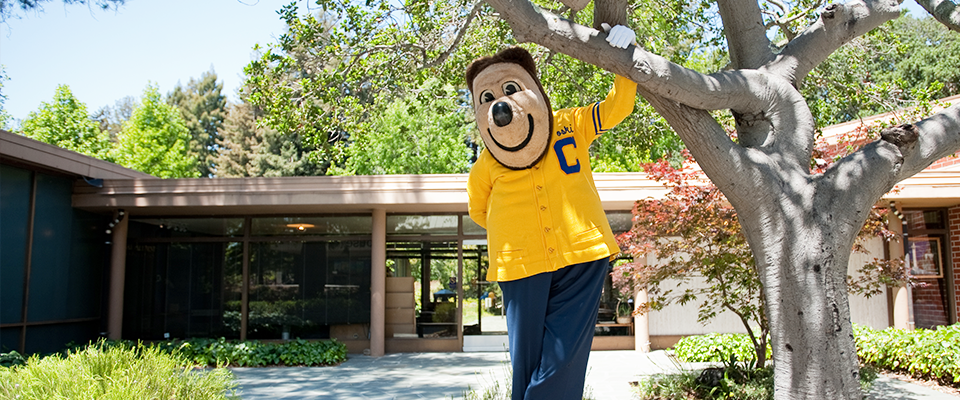UC Berkeley requires just one application for potential students. The requirements and essay questions for all applicants are the same. Everyone endures the same waiting period before learning if they’ve been accepted. While waiting is the greatest equalizer amongst applicants, the road to applying is as varied as Cal’s course offerings. But once at Cal, the opportunities can be endless—perhaps The Achievement Award Program (TAAP) scholars know this best.
“I’m grateful for not only an academic setting but for the emotional support, mental support, and resources as well,” says John Lam ’23, a system-impacted student. “The sky is the limit!”
For system-impacted and formerly incarcerated students, attending college is a challenge. Limited resources and precarious circumstances present roadblocks that can be difficult to navigate. Unlike traditional students, who come directly from high school, system-impacted students have to forge their own paths to attend college.
“It was ingrained in me that once you get to Cal, you’ll be successful,” says Lam.
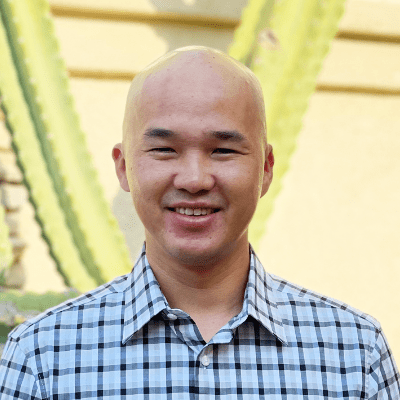
Lam is the son of immigrant parents, refugees from the Vietnam War who settled in Sacramento. His parents believed that education was the key to success and that Cal was the pinnacle of that. “I had a cousin that got into Cal, and even my grandfather [would] praise my cousin,” Lam recalls, “And it’s true! I don’t know any Cal failures. Maybe there are some, but I don’t hear those stories.”
As a high schooler, Lam did well academically, but college was not in his foresight. After becoming involved in the wrong crowd, Lam was sentenced to a life sentence at San Quentin at 17 years old. He was released in October 2019 at 34 years old with the passage of the S.B. 260 bill, which reviews sentences for juveniles tried as adults.
Upon release, Lam was eager to start his life again. “I was trying to figure things out,” he recalls, “how do I set a roadmap to success for myself?” Lam had taken courses in coding and software engineering while incarcerated. After his release, he decided to apply to several UC campuses. With its reputation as a premier public university and its proximity to his family, Cal “was a no-brainer” option. He immediately began taking classes to fulfill application requirements.
“The thing about having a system-impacted background is that there [are] so [many] structural barriers to access higher education.”
In May 2021, Lam was accepted to UC Berkeley, but faced a new decision; either take a high-paying software engineering job that would help him support his family or enroll at Cal. “I know if I put the same amount of effort into software engineering, that at the end of the day I could get a really good paying job. With Cal, I don’t know what’s the story at the end of it. I don’t know what the payout is, but ultimately it’s an experience I’ve never had.
He connected with Cal’s Underground Scholars, an organization that supports formerly incarcerated or system impacted students transitioning to Cal. At the same time, he applied for various scholarships. Lam ultimately received The Achievement Award Program Scholarship, which provides financial assistance and programming support to community-minded students during their undergraduate careers.
Lam is a go-getter, looking for any and every opportunity that Cal has to offer. As a college student matriculating back into socety, Lam faced challenges, but was willing to take them on. Even with a full scholarship, Lam still works to take care of his parents and to financially prepare for the future.
TAAP recipient, Michelle Maxwell ’23 knows about the hustle, too. While serving an eight-year sentence, she started taking courses through an online community college and decided to apply to the UC system schools. “They don’t have a paper application, so I had to write everything out, and I sent it to [Erin].” Her best friend Erin, who is also a transfer coordinator with Underground Scholars, helped her submit her application. “She got my application in at 11:58 p.m.”
There are two things that you can do with it when you’re formerly incarcerated: you can either be ashamed of it … Or you can own it.
Michelle Maxwell ’23
UC Berkeley was Maxwell’s first choice, but getting in felt like a long shot. “I was just waiting for an email,” she remembers tearfully. Erin had created an email address so Maxwell could receive communications from the school. The wait, however, was so long she almost lost hope. Then Erin forwarded her an email. Maxwell had been accepted to UC Berkeley. “I didn’t know what to do. I was so happy, I cried, I called my mom.”
As a teenager, Maxwell never thought about college. Growing up in the Tenderloin neighborhood in San Francisco, she was always in survival mode. “My vision for myself was not that large, I just considered myself sort of finished and whatever I was doing was what I was doing, and that’s what I was gonna continue to do.”
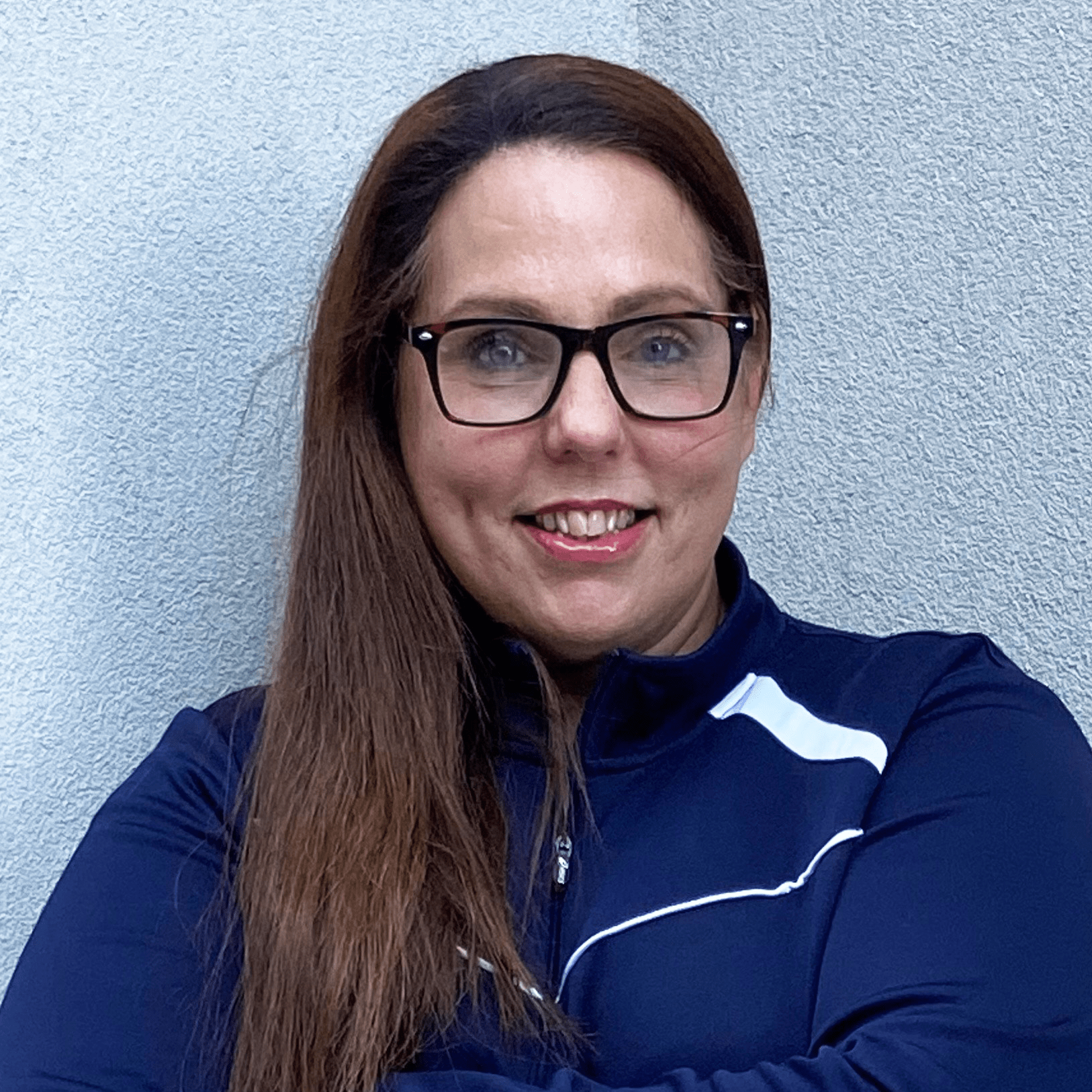
Maxwell is brand new to the student experience, especially at a university like Cal. “It’s like I’m learning things that I should have learned 30 years ago,” she says, “I didn’t get all the skills that I needed to get by in an academic environment.” Communication and social skills are still things she says she’s still learning. She’s 50 but feels like a teenager taking their first steps into the real world. “I’m pretty much 20 years old. I really feel that way and I’m having just a typical student experience.”
The transition was not easy. Maxwell had only been released two weeks earlier when she was accepted to Cal and entered transitional housing. Creating a stable life for herself, as well as being a college student, was a whirlwind. “I hit the ground running, and so I didn’t really have time to process the eight years I had just done in prison.”
Reentering society aside, Lam and Maxwell were both concerned that they couldn’t relate to their peers because of their age. Questions regarding their undergraduate timeline and other innocuous asks don’t have simple answers.“These people are just too smart and they’re all kids. I’m not a kid. They have fresh brains and energy and all that stuff,” says Maxwell.
Lam and Maxwell hope to support other incarcerated and system-impacted people who aim to attend college. Maxwell is majoring in legal studies with a minor in public policy. She also volunteers with Underground Scholars.
“To have someone who understands what I’m talking about or going through, that’s been really helpful for me to be able to have that kind of support. If I didn’t have the Underground Scholars to support me, I would have had a really hard experience.”
Lam is majoring in political science and acts as a program coordinator for Asian Prisoner Support Committee. The Oakland-based organization provides support for Asian and Pacific Islander prisoners and raises awareness for API prisoners who are imprisoned, detained, or deported. Reflecting on his time incarcerated, the journey that led to Cal, and the work he does now, it reaffirms his belief that “no matter how marginalized somebody is in society, their voice can still be heard and they can still advocate to change their life.”
“There are two things that you can do with it when you’re formerly incarcerated: you can either be ashamed of it … Or you can own it,” Maxwell says about the stigma. She credits her time in prison with her discovery of education. Though she doesn’t run away from her past and credits it for where she is now, Maxwell says that’s not all she can be. For Maxwell and others like her, being formerly incarcerated is just a step towards other positions in life. “I see formerly incarcerated people who now identify as other things, like a legislative advocate, [a teacher] or whatever their passion is.”
Alumni: Learn how you can support The Achievement Award Program.
Students: If you would like to apply for The Achievement Award Program, visit the Cal Alumni Association Application Portal. Open only to prospective first years and junior transfers.










